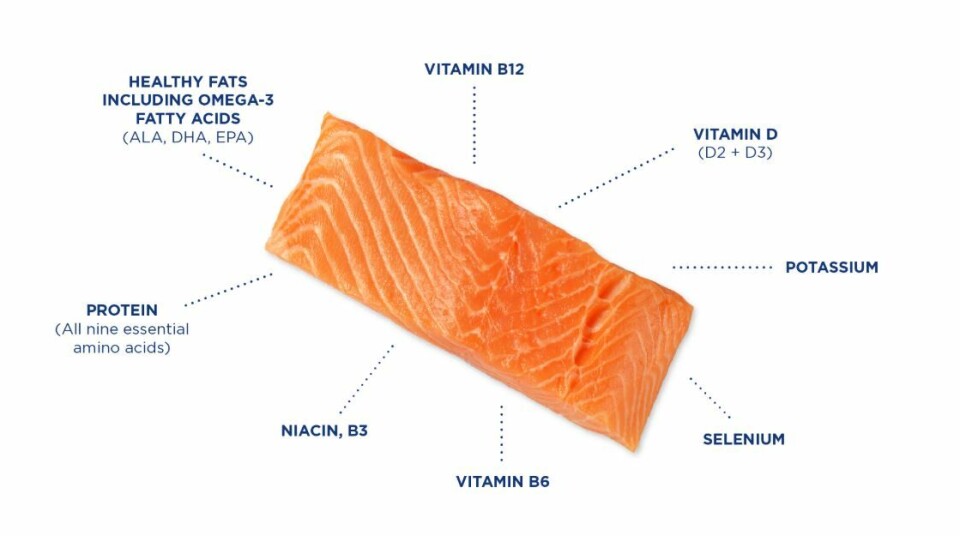
Salmon sustainability is an open book for GSI
The Global Salmon Initiative (GSI) today published its 2019 annual sustainability report, which provides a breakdown of 15 key sustainability metrics per member company and per region.
These include fish escapes, fish mortality, antibiotic use, sea lice numbers and treatments, and use of marine ingredients in feed.
Two salmon farmers operating in Scotland – Mowi and Grieg Seafood – belong to the GSI, whose members produce around half of the world’s farmed salmon.

Informed choices
All three of the large-volume Atlantic salmon farmers operating in British Columbia, Canada – Mowi, Grieg and Cermaq – are also covered in the report.
There is not yet any information about Mowi’s recently acquired Atlantic Canada operation, formerly called Northern Harvest. Likewise, although there is information about Faroese farmer Bakkafrost, there is not yet any information about its Scotland operation, the Scottish Salmon Company, acquired late last year.
“Within this report, we have outlined the environmental performance and nutritional content of farm-raised salmon, allowing people to make informed choices based on up-to-date information, as well as showing where and how we plan to make further progress,” said GSI chief executive Sophie Ryan.
Novel oils
Key trends from the report, the seventh produced by the GSI, include:
- A 50% reduction in the use of antibiotics over the past seven years, which can be attributed to the improvements in antibiotics stewardship, disease control and fish welfare of GSI members
- Over 710,000 tonnes of GSI members’ farmed salmon sold as Aquaculture Stewardship Council (ASC) certified last year, representing almost 65% of GSI members’ total production.
- A shift towards a more holistic approach to preventing and managing sea lice has resulted in a 50% decrease in medicinal use, and a 130% increase in non-medicinal approaches since 2013
- Continuing efforts to accelerate availability and uptake of alternative responsible feed ingredients, such as novel oils (algae and canola crops) and fish by-products
- When compared with other animal proteins, farmed salmon represents an environmentally conscious choice, with a lower carbon footprint, requiring less land, and more efficient use of feed resources
- Farmed salmon provides a nutrient-dense food which supports healthy diets
The GSI said the report is unique because it breaks down the technical detail of each of the 14 members across the same sustainability indicators most critical to their responsible growth.

Learning from each other
“By publishing our annual sustainability report, we not only demonstrate our contribution to sustainable food systems, but also hold ourselves accountable to our ambitious sustainability targets,” said Gerardo Balbontín, chief executive of Chilean salmon farmer Blumar and GSI chair.
“Using the data in the report, we are able to identify areas where further effort is required, learn from each other, and accelerate the necessary improvements.
“Only with such innovations, at a global scale like we work on at GSI, can we ensure salmon farming continues to sustain healthy diets and more resilient global food systems.”
GSI member companies are Australis Seafoods (Chile); Bakkafrost (Faroes and Scotland); Blumar (Chile); Cermaq (Canada, Chile and Norway); Salmones Camanchaca (Chile); AquaChile (Chile); Grieg Seafood (Norway, Canada and Scotland); Mowi (Norway, Scotland, Ireland, Faroes, Canada, Chile); Multiexport Foods (Chile); New Zealand King Salmon (NZ); Nova Sea (Norway); Salmones Austral (Chile); Tassal (Tasmania); and Ventisqueros (Chile).
The sustainability report, which also includes a detailed nutrient profile of salmon, can be found here.























































